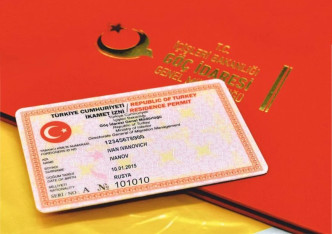Right to Deferment from Mobilization Due to Health or Family Circumstances: A Comprehensive Guide
The issue of mobilization deferment is governed by law, providing individuals facing specific health or family-related challenges the right to postpone their conscription. As mobilization efforts continue to be a significant aspect of national security measures, understanding the legal provisions and practical steps to obtain such deferment is vital for eligible persons.
This article offers an in-depth exploration of deferment rights pertaining to health conditions and family situations, detailing who qualifies, the necessary documentation, and procedural guidance to lawfully secure a deferment from mobilization. The information herein adheres to the legal framework and considerations relevant as of 2025.
Understanding Mobilization Deferment: Legal Basis and Eligibility
Mobilization deferment is a legally established right intended to protect individuals who, due to health impairments or family obligations, cannot comply with immediate conscription requirements. The law recognizes that conscripting such individuals without due consideration could result in undue hardship or significant harm both to the individuals themselves and their dependents.
According to current legislation, deferment is granted under several specific categories:
- Persons with disabilities, irrespective of the degree, who are formally recognized as having impairments limiting their participation in military service;
- Individuals temporarily unfit for military duty due to health conditions that require medical treatment or recovery;
- Parents who have three or more children, acknowledging their family responsibilities;
- Single mothers or single fathers caring for children without the other parent;
- Guardians or custodians responsible for children with disabilities, given the increased care needs;
- Persons tasked with the care of seriously ill family members who rely on their support.
Detailed Description of Eligible Categories
To provide clarity on eligibility, each category is defined with precise criteria and examples, ensuring prospective applicants are fully aware of the requirements and their rights.
1. Persons with Disabilities
Individuals with officially recognized disabilities benefit from deferment provisions reflecting their limitations. Disability status is determined according to the established medical and social evaluation system, which categorizes disabilities by type and severity. Such individuals are often exempted entirely or deferred for the duration of their medical condition.
It is crucial for disabled persons seeking deferment to have official documentation issued by authorized medical commissions confirming their condition and the extent to which it impairs their ability to serve.
2. Temporarily Unfit Individuals Due to Health Conditions
Health issues that are transient but significant enough to prevent immediate conscription qualify individuals for interim deferment. Common examples include recoverable injuries, illnesses requiring extended treatment, or medical procedures necessitating recovery time.
Such temporary deferment aims to allow the individual time to regain fitness for service, subject to reassessment. Medical certificates from recognized healthcare providers form the backbone of applications in this category.
3. Parents of Three or More Children
Persons who are parents to three or more children are accorded deferment rights acknowledging their family responsibilities. This legal recognition is particularly important to maintain family stability and ensure the welfare of multiple dependent children during the challenging circumstances of mobilization.
Verification involves submission of official documentation such as birth certificates for all children and proof of parental relationship.
4. Single Mothers or Fathers
Single parents—whether mothers or fathers—are provided deferment rights due to the sole responsibility they carry for their children. This measure seeks to ensure that their children receive continuous care and support amid mobilization efforts.
For verification, single parents must present official documents evidencing sole custody or the absence of the other parent through judicial rulings, death certificates, or relevant social services attestations.
5. Guardians of Children with Disabilities
Guardians or custodians who take care of children with disabilities benefit from mobilization deferments, given the extraordinary needs these children require. The law acknowledges that suitable caretakers are indispensable for these children's well-being.
Applicants must produce documentation confirming their guardianship status and the child’s disability certification as issued by competent authorities.
6. Caregivers for Seriously Ill Family Members
Deferment is available for individuals providing caregiving services to chronically or severely ill family members whose condition necessitates constant supervision and assistance. This recognizes the social and medical importance of familial care in situations where institutional support may be unavailable or insufficient.
Supporting medical records describing the illness and a statement of caregiving responsibilities are critical documents for these cases.
Procedural Steps to Legally Obtain Mobilization Deferment
Securing a deferment requires more than just eligibility; it hinges on meticulous preparation and official application to the Territorial Centers of Recruitment and Social Support (TCRSS), often referred to simply as TCC.
The process involves several key stages outlined below:
- Assessment and compilation of all relevant supporting documents authenticating eligibility;
- Completion of application forms as stipulated by TCC guidelines;
- Submission of the full packet of documents and forms to the appropriate TCC office;
- Attending any required interviews, medical examinations, or evaluations called for by TCC officials;
- Awaiting a formal decision on the deferment application;
- If approved, receipt of official deferment certification valid for the designated period;
- If denied, exploring options for appeal or reapplication based on additional evidence or changes in circumstances.
Essential Documentation and Medical Evidence
The cornerstone of a successful deferment application lies in the accurate and thorough documentation. Both medical and legal documents must be official, up-to-date, and correctly issued by authorized bodies. Below is an overview of vital documentation categories:
- Medical certificates, including disability assessments, prognoses, and recovery timelines;
- Birth certificates and family related civil registry documents to establish parental or guardianship status;
- Legal documents verifying single parenthood or custody arrangements;
- Statements from social services or medical institutions confirming caregiving duties;
- Completed and signed application forms as per TCC directives;
- Any supplementary documents that may strengthen the case, such as letters of recommendation or additional medical opinions.
Common Challenges and How to Overcome Them
Applicants often encounter obstacles that can delay or complicate obtaining a deferment. Awareness and proactive management of these challenges facilitate smoother processing:
- Incomplete or outdated medical documentation – ensure that medical reports are recent and comply with official standards.
- Incorrect or missing legal paperwork – double-check all documents for accuracy and completeness prior to submission.
- Misinterpretation of eligibility criteria – seek legal advice or official consultation to confirm if your situation qualifies.
- Delays in TCC processing – maintain regular communication and be prepared to provide additional information promptly.
How Professional Assistance Can Facilitate the Process
Legal professionals and consultants specializing in military service laws can significantly increase the likelihood of timely and favorable outcomes. Their services include:
- Reviewing and validating eligibility and documentation;
- Assisting in the preparation of official applications;
- Representing applicants during interactions with TCC;
- Providing legal counsel concerning appeals and rights protection;
- Ensuring adherence to the latest 2025 legislative updates and procedural protocols.
Professional guidance can reduce stress and prevent procedural errors that may jeopardize one's rights under the law.
Contact Information for Consultation and Legal Support
If you believe you are eligible for a deferment from mobilization due to health or family circumstances, it is crucial to act swiftly and precisely. Expert consultation is only a phone call away to ensure you understand your rights and receive appropriate assistance in preparing and submitting your case.
For personalized advice and comprehensive support, please contact us at the number shown on your screen. Your journey to lawful deferment and protection of your rights begins with your first call.
-
Legal Support Service — offering specialized consultation and representation for mobilization deferment and related rights protection. With expertise grounded in up-to-date 2025 regulations, we strive to provide comprehensive assistance to every client.
Mobilization deferment based on health conditions or family responsibilities is a fundamental right protected by law. Individuals who fall under the eligible categories should not hesitate to claim this right by properly documenting their circumstances and submitting their applications through the designated channels.
Understanding the legal provisions, preparing the necessary paperwork accurately, and seeking expert guidance significantly improve the prospects of obtaining a lawful deferment. As the mobilization framework evolves, staying informed about the latest legal updates as of 2025 is essential for all concerned.
Your well-being and family stability matter. Utilize your rights and seek qualified support to navigate this complex process confidently.



































